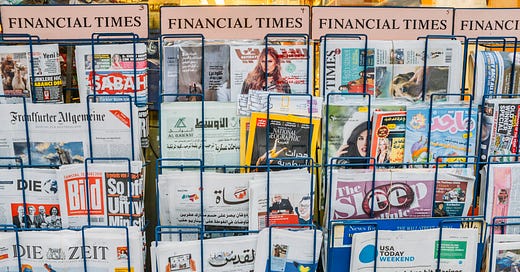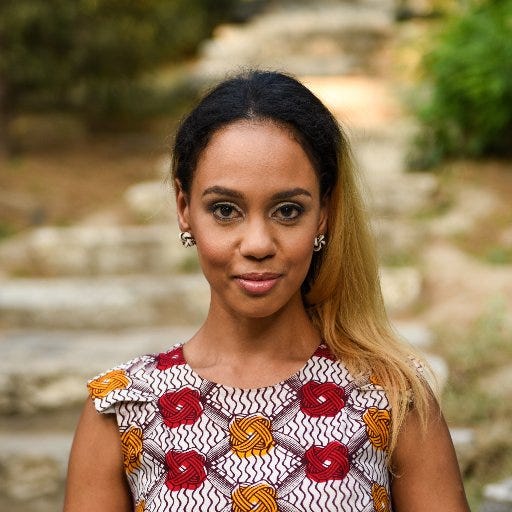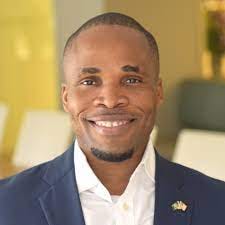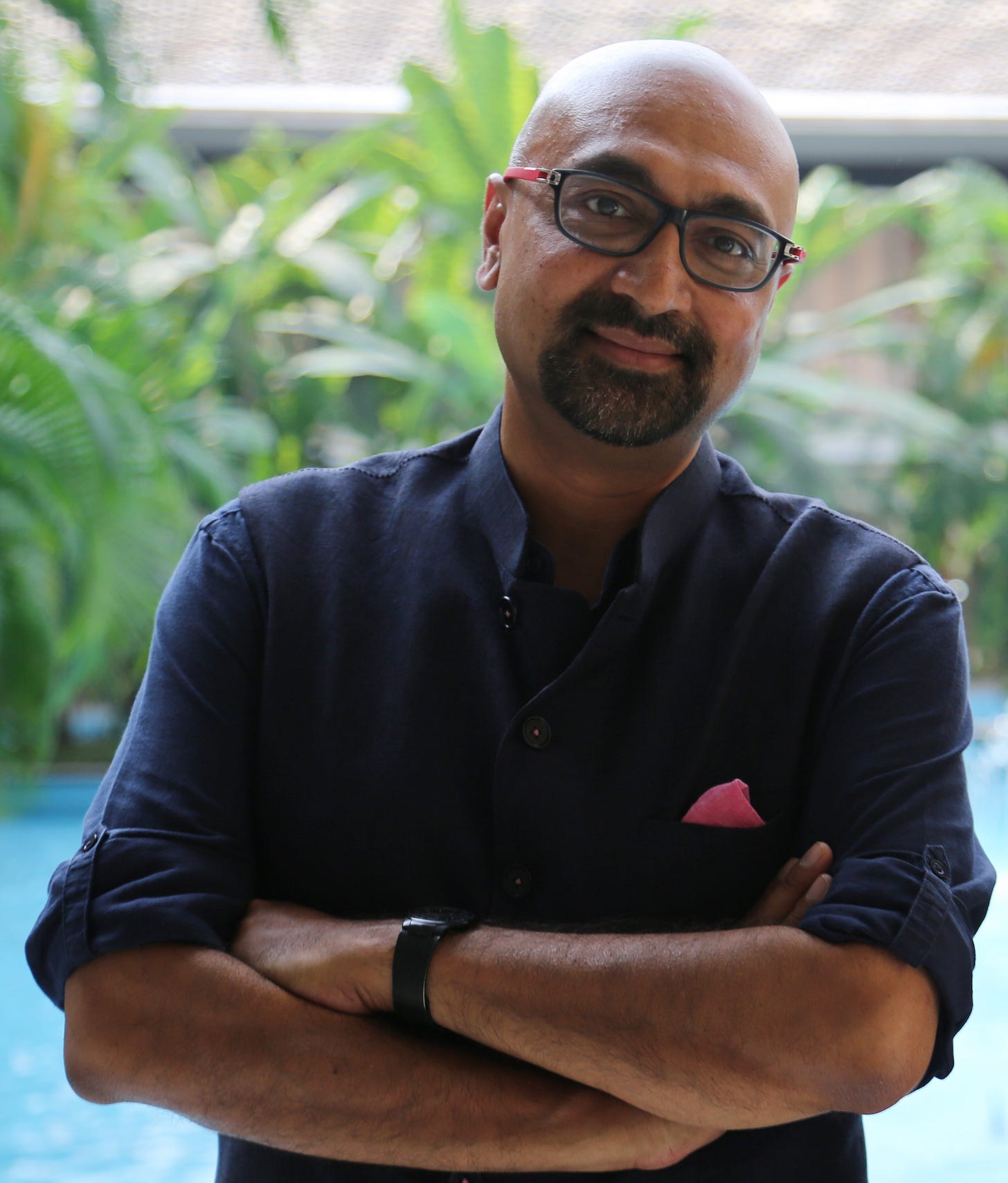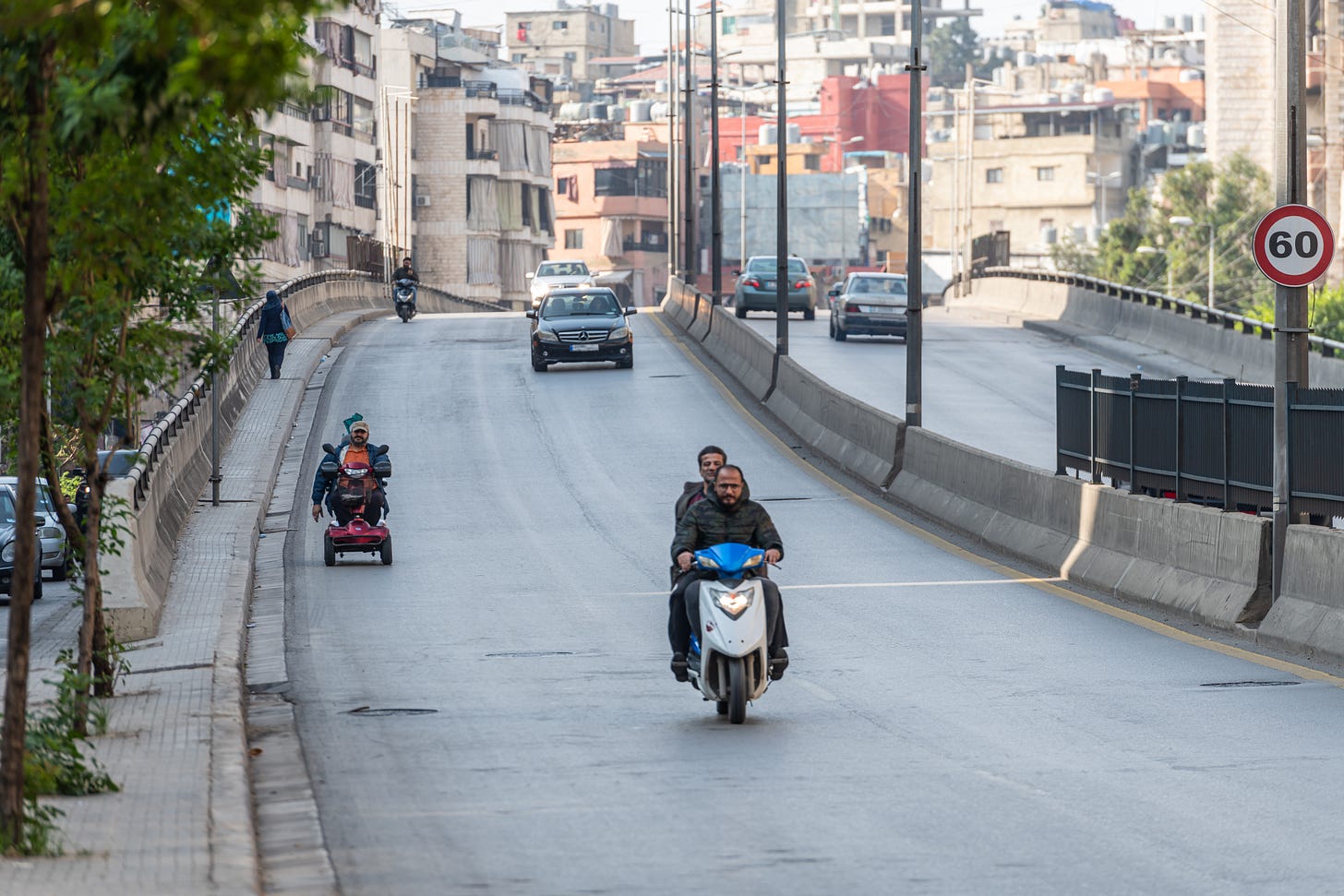Emerging World Tribune
Five Columns That Caught My Eye This Week: China and Africa, Latin America and the World, Iran Elections, and Lebanon's Historic Decline
Dear friends and fellow travelers,
We’ve been on this Emerging World journey together since the beginning of 2021. Thank you for being part of this journey. Our humble caravan has become a lot less humble with fellow travelers like so many of you.
At last count, we’ve published 119 Emerging Markets dailies, twelve Emerging World original columns, and five long-form original interviews with leading thinkers. A lot of you have commented about our recent interview with Daniel Yergin, particularly the parts where he describes his writing style - “The New World Has a New Terrain.”
“My mother was an artist and I would watch her sketch. When I write, I sketch,” Yergin told me. “I sketch out this section and ask: how does this flow from that? How does this relate to that? I draw lines and circles… I really do like the process of editing. Some people get a lot of pleasure from hitting a golf ball. I get a great deal of pleasure from getting a sentence so taut that it sings. Get the language as right as I can. I read it aloud to myself, and I ask: how does this sound? And so I will I go through a lot of drafts to do it, but it's not painful, because I enjoy the craft.”
The Yergin interview is exactly what I had hoped when I launched this site. We’d explore consequential topics with leading thinkers, but also dive a bit deeper into personal aspects: unlikely passions (Parag Khanna’s barefoot running in Singapore was one such surprise), writing processes, personal histories and fears, favorite travel moments, and more. Thank you for the comments and please keep sharing our work with others.
My most recent column, Globalization in a Mug, also seems to have hit a nerve, and has sparked some new conversations with coffee traders and industry specialists. I’ll stay on that trail. The piece hasn’t quite gone viral the way Globalization in a Needle or Why Travel Matters did, but with 2.25 billion cups of coffee consumed every day worldwide, there’s plenty of coffee drinkers out there who might find my musings on “how coffee explains the world” of interest. Another column I wrote recently, linking Downton Abbey and Indian hip-hop artist to the rocket fuel of Aspiration reshaping our world has also continued to generate conversation, and I just got fun note from a teenage K-pop fan commenting on my article on “How BTS and K-Pop Explain the World.”
This is the day (Saturday) and the space where my regular column appears, but I thought I’d give you a rest from my musings this week and hand the reins over to others. Over at Emerging World, as we scour the vast horizon of global media to prepare the EM Daily every day except Saturday (hat tip to my Dubai-based Research Associate, Rick Twelves), we often stumble upon smart, insightful, surprising opinion pieces - sometimes written by our very own subscribers, fellow travelers, and friends. We don’t cite opinion or comment pieces in the EM Daily so, in lieu of another column by me, I wanted to point out the five columns that caught my eye this week.
China-Africa Ties, or Why Not Africa-China Ties?
Let’s start with the always smart Hannah Ryder, CEO of Development Reimagined, a former Kenyan diplomat, and Emerging World fellow traveler and friend.
She asks: why do we always think in terms of the China-Africa relationship, and not the Africa-China one?
“Africa is not getting all it can from its relationship with China. It is time to ask not what Africa can do for China, but what China can do for Africa,” she writes in African Business.
She writes: “The China-Africa relationship has so far been very much ‘China-Africa’, rather than ‘Africa-China’. That said, this is not unusual when it comes to African foreign policy. It is very often others who set the agenda. International meetings convened by think-tanks, academics and international organisations constantly ask ‘What should the US policy be towards Africa?’, rather than the other way: ‘What should Africa’s policy be towards the US?’
“Is it audacious,” Ryder asks, “to try to turn the China-Africa relationship around – to focus more on what Africa wants from China rather than the reverse? Does it matter, and is it even possible? Does the continent have sufficient bargaining power and, perhaps more importantly, collective will to do so?” Read her column in African Business for some answers.
China’s Infrastructure Play in Africa Dwindles and Why That Matters
Speaking of China-Africa or, rather, Africa-China, Gyude Moore, another friend of Emerging World and a senior fellow at the Center for Global Development (and a former Minister of Public Works of Liberia), notes that China’s investments in Africa infrastructure are declining, listing a range of reasons for this fall. “Whatever the drivers of Chinese retrenchment from infrastructure financing, it leaves a gap for which there is no ready replacement,” he writes in a piece published in the Independent of Uganda.
He writes: “It could not have come at a worse moment for Africa. The effect of the Covid-19 pandemic has already wreaked havoc on African economies. Movement restrictions and the huge fall in demand at the beginning of the outbreak have forced treasuries to the brink, leading to Zambia’s default on sovereign debt and a significant liquidity crunch.”
“The IMF now predicts that Africa will be the world’s slowest growing region in 2021. Since African governments finance up to 40% of their own infrastructure, any reduction in revenues will translate into a reduced capacity to fund infrastructure upgrades and maintenance and bring new projects online.”
“In its recent report on African infrastructure, law firm Baker McKenzie shows that the decline in lending from China has not been the only bad news for African infrastructure. Multilateral lending has also declined. This decline comes on the heels of a definitive shift by Western governments away from financing all fossil fuels. Yet in Africa, where over half a billion still lack access to electricity, the IEA’s Global Electricity Reviewshows that only a third of the rise in Africa’s energy demand was met by renewable sources.” To read Gyude’s full piece, go here.
Latin America and the World
Moving over to Latin America, I wish I could read Spanish so I could read Gabriel Sanchez Zinny’s regular columns. Gabriel is also a friend and Emerging World fellow traveler and important global thinker, and he recently wrote on the importance of globalization for Latin America’s future in Diario Jornada of Argentina. (Thank you Google Translate for the translation below. Gabriel: sorry, if the translation loses any of your poetry!)
He writes:
“Herein lies a fundamental challenge for Latin America, whose trade integration is really low compared to other continents, and more so now if one takes into account the emergence of China as the second trade partner of the Region, the institutional weakness of the integration agreements and the effects of the pandemic.”
“One number that graphs this is the intraregional trade coefficient, which fell to 12%, its lowest value since 1990, according to ECLAC…”
“Mexico, despite its geographical proximity and cultural proximity, imports less than 1% of goods from Central American countries. Therefore, if we want to move forward as a region, generating greater economic development, quality jobs, and less poverty, we have to find our place in these global value chains and integrate more with each other and with the world.”
“In addition to taking advantage of the current debates on near-shoring, seek to be attractive as a region for the relocation of companies that may be relocating from China and other Asian countries. Years of little economic growth, and even less progress in reducing inequality, have to lead us to promote innovative public policies. Integrating into the world is surely one of the most important.” For the original column in Spanish, go here.
The Real Iran Elections: Regime Legitimacy
Now, moving on to the Middle East, Bloomberg columnist Bobby Ghosh captures the essence of the matter in the upcoming Iran presidential elections well, when he reminds us to watch the most important metric of all: turnout. “Unsurprisingly, opinion polls suggest turnout will be the lowest in Iranian history,” he writes. “with only a third of potential voters showing any enthusiasm for the process. There are growing calls for a boycott of the ballot.”
He gets to the crux of the matter here: “Elections in Iran are never free or fair, since the Supreme Leader always puts his thumb on the scales, usually by limiting the contest to candidates who meet his approval, while the rest are disqualified by the Guardian Council, which supervises the process. But Khamenei has always encouraged people to vote by appealing to their nationalism, and then pointed to the turnout, rather than the results, as proof that Iranians continue to endorse the system of government over which he presides.”
“That pretense will be hard to preserve if turnout drops below 50%. That happened recently in last year’s local elections, but it’s never been seen in a presidential vote.”
“Khamenei has once again urged Iranians to do their duty, and to disregard calls for a boycott. He will repeat that message ad nauseam for the next two weeks — and hope voters don’t have anything better to do on June 18. Team Melli [The Iran national team] has no games for that Friday, but there are a couple of other interesting soccer fixtures on the cards.”
“Come election day, Iranians may find Argentina v. Uruguay more compelling, more competitive and arguably, no less consequential than Raisi v. Nobody. That would leave Khamenei the loser.” For the full column, see here.
Lebanon’s “Historic” Economic Decline
And finally, our friends over at The National, helmed skillfully by Emerging World friend Mina Al-Oraibi, devoted considerable space to the recent World Bank report that ranks Lebano’;s economic decline as among the worst in history over the past century and a half.
“Times were tough in the 1850s,” The National writes in its unsigned editorial. “Even in the most developed countries, life expectancy at birth was around 40 years. By today's standards, the vast majority of people lived in poverty. By the end of the decade, the world had witnessed what some now consider to be the first truly global economic crisis, when in 1857 the failure of a major US insurance and trust company led to a collapse in the American banking system, with repercussions felt in Europe and East Asia.”
“There have, since then, been other economic crashes, national and international. Few, according to a new report by the World Bank, have been as bad as the one being endured in Lebanon today. The report, titled Lebanon Sinking: To the Top 3, goes so far as to conclude that Lebanon's economic crisis could be among the three most severe economic calamities that the world has seen since the Panic of 1857.”
“A leadership vacuum that has seen politicians wrangle for months on end over control of various ministries, with seemingly little interest in actual policymaking, is both a cause and an amplifier of the crisis. Compounding it is Covid-19, as well as the fallout from last summer's Beirut blast, one of the largest non-nuclear explosions in history.” For the Full editorial, see here.
That’s it for this weekend’s column. Thank you to friends and fellow travelers for helping me “write” this column. There is so much good content out there, and we try to bring you as much relevant news and features as we can in the Emerging Markets Daily. I’m pleased we can offer you some opinion and analysis here.
As always, we welcome your outreach and if you see an article you particularly like, please share with others and encourage them to join us. Our humble caravan is growing. We have a long, exciting journey ahead of us.
If you are not a subscriber, and you’d like to receive an Emerging Markets daily, the weekly Emerging World column from Afshin Molavi, and occasional thought leader interviews hit the button below…

